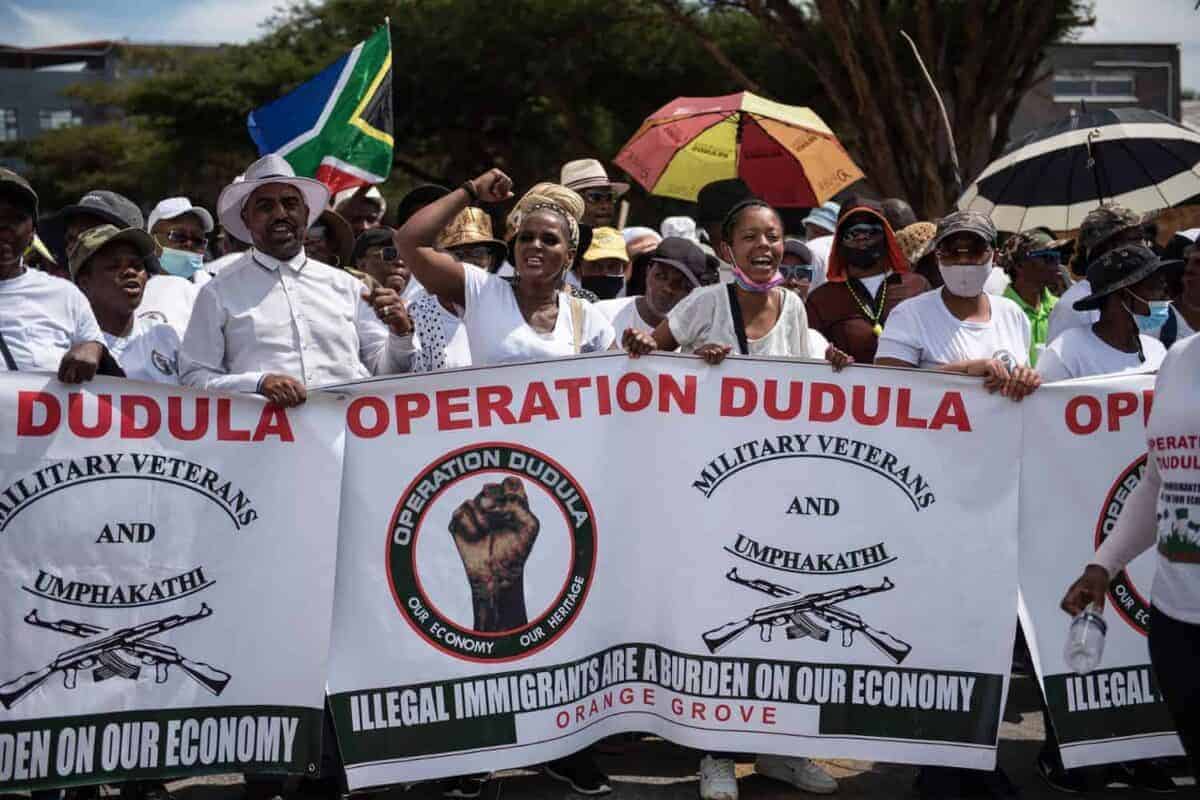The interdict matters because it interrupts the pipeline from online incitement to offline intimidation.

On 4 November, the High Court in Johannesburg handed down a landmark judgment in Kopanang Africa against xenophobia and others versus Operation Dudula and others, drawing clear legal lines against private vigilantism and compelling government accountability for xenophobic hate speech and hate crimes.
Voluntary public-benefit organisations joined the case to protect everyday spaces – clinics, schools, homes and trading stalls – where xenophobic pressure often erupts.
Their aims were direct: stop private actors from usurping state functions, secure access to essential services and compel the state to implement its National Action Plan (NAP), especially around early-warning, rapid-response, and disaggregated data.
Operation Dudula did not emerge in a vacuum. It is the concentrated expression of years of street-level harassment, “ID raids”, clinic blockades and township purges marketed as community justice but functioning as privatised border control.
By normalising crowds as immigration police, Dudula-style formations displaced constitutional order – placing mobs above law, slogans above evidence and repeatedly infringing on individual rights.
This judgment meets that project head-on and places it back within the confines of legality.
Section 41 of the Immigration Act empowers “immigration and police officers” to request identification and ascertain lawful presence.
ALSO READ: ‘Stop employing illegal foreigners or face possible jail time’ – Ramaphosa
The court clarified three binding standards:
- Public places only: Section 41 does not authorise warrantless checks in private spaces. Officers may act only in public areas, drawing a line against common abuses.
- Reasonable suspicion required: officers must hold a reasonable suspicion before requesting identification. Appearance, accent, or nationality stereotypes do not qualify. This converts Section 41 from a dragnet into a targeted tool restrained by reason.
- Protection of children: the power does not extend to the interrogation, arrest, or detention of children except as a last resort and only in line with Section 28(1)(g) of the constitution.
The order interdicts Operation Dudula and its leaders from intimidation, harassment, hate speech, blocking health care, interfering with schools, unlawful evictions and inciting others to do so – including online.
They must also communicate the order to their members.
As previously argued, xenophobic mobilisation now flourishes in algorithmic echo chambers where coordinated disinformation primes real-world harm.
This interdict matters because it interrupts the pipeline from online incitement to offline intimidation – restraining the private deputising that turns rumours into raids.
When self-appointed formations assume coercive functions, they erode constitutional order, displace rights-based policing with partisan persecution and teach communities that protections are optional – especially when the target is foreign.
Left unchecked, that logic doesn’t stop at migrants; it comes for whoever is next.
ALSO READ: Wedding bells: Will ActionSA ‘collaborate with Operation Dudula for the elections?
The court also directed government to take reasonable steps to implement the NAP: establish early-warning and rapid-response mechanisms and publish disaggregated data on xenophobic hate speech and crimes, including prosecutions and convictions.
For example, if WhatsApp voice notes and Facebook Lives circulate about “foreigners taking over” a clinic, the system should flag the spike at precinct level.
Police, the department of health and clinic managers must coordinate protection. Community mediators should defuse tensions.
A public dataset should track incidents, arrests and case outcomes. The court names the harm accurately: “Xenoracism”, directed predominantly at black African foreign nationals.
This judgment doesn’t end with principle – it creates a judicial pathway for enforcement.
Private actors face standing bars; organisers can be held personally liable.
For government, duties are now court-ordered obligations.
South Africa has a precedent and a road map; a clear standard, measurable duties and consequences for non-compliance.
Dignity is the measure of our constitutional order. This judgment holds us to it.
NOW READ: Court interdicts Operation Dudula from targeting foreign nationals at hospitals, schools
Support Local Journalism
Add The Citizen as a Preferred Source on Google and follow us on Google News to see more of our trusted reporting in Google News and Top Stories.








